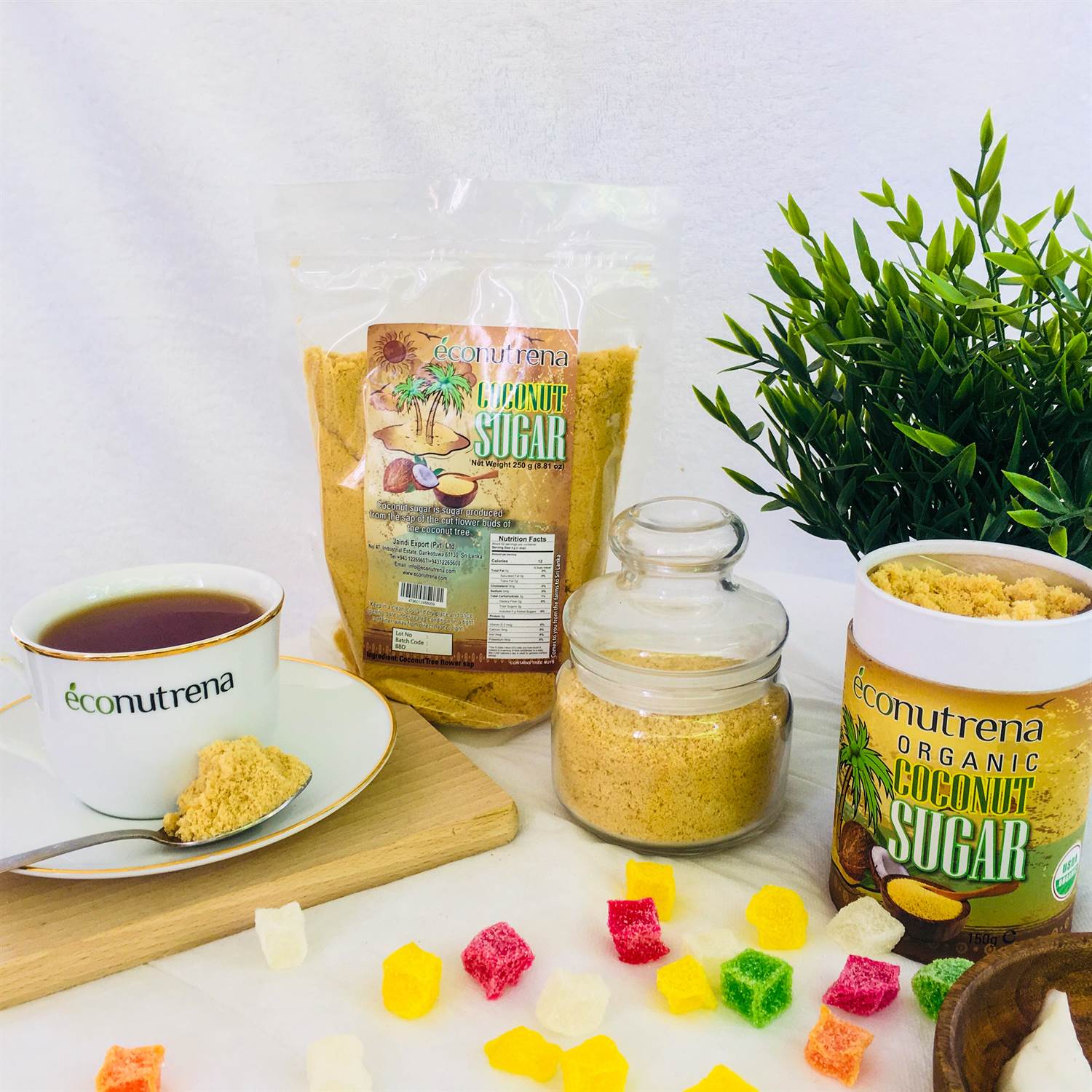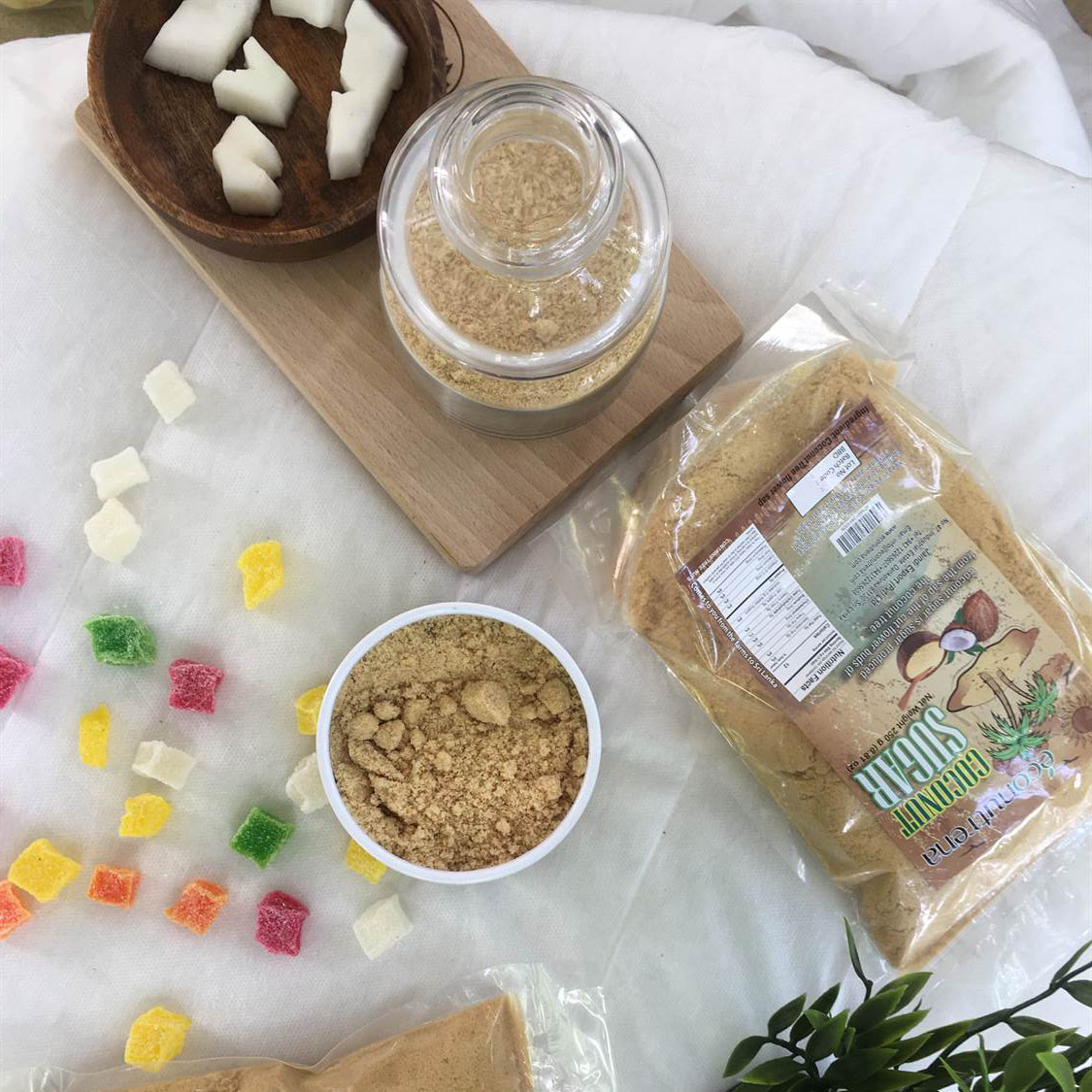Coconut sugar is similar to brown sugar in its consistency and appearance but with a hint of caramel. It is made from the sap of the coconut palms. By tapping the sweet nectar from the coconut flowers, heating and condensing the liquid into crystal form, Econutrena coconut sugar provide a best substitute for brown sugar. It is very high in calories, small amount of minerals, antioxidants and fiber. It has low glycemic index, less fructose and good for gut as well.
Important information: An unopened bag of coconut sugar has a maximum of 24 months of shelf life. Once opened, keep the bag air tightened and away from water, direct sunlight and heat.
Organic Coconut Tree Flower Sap
Energy 1570 KJ
Total fat 0 g
Saturated fat 0 g
Protein 0 g
Total Carbohydrate content 100 g
Total Sugar 100 g
Sodium 0 mg
Retail 250g, 500 g, 1 Kg and 20 Kg bulk package
(Further packaging sizes available on request)





